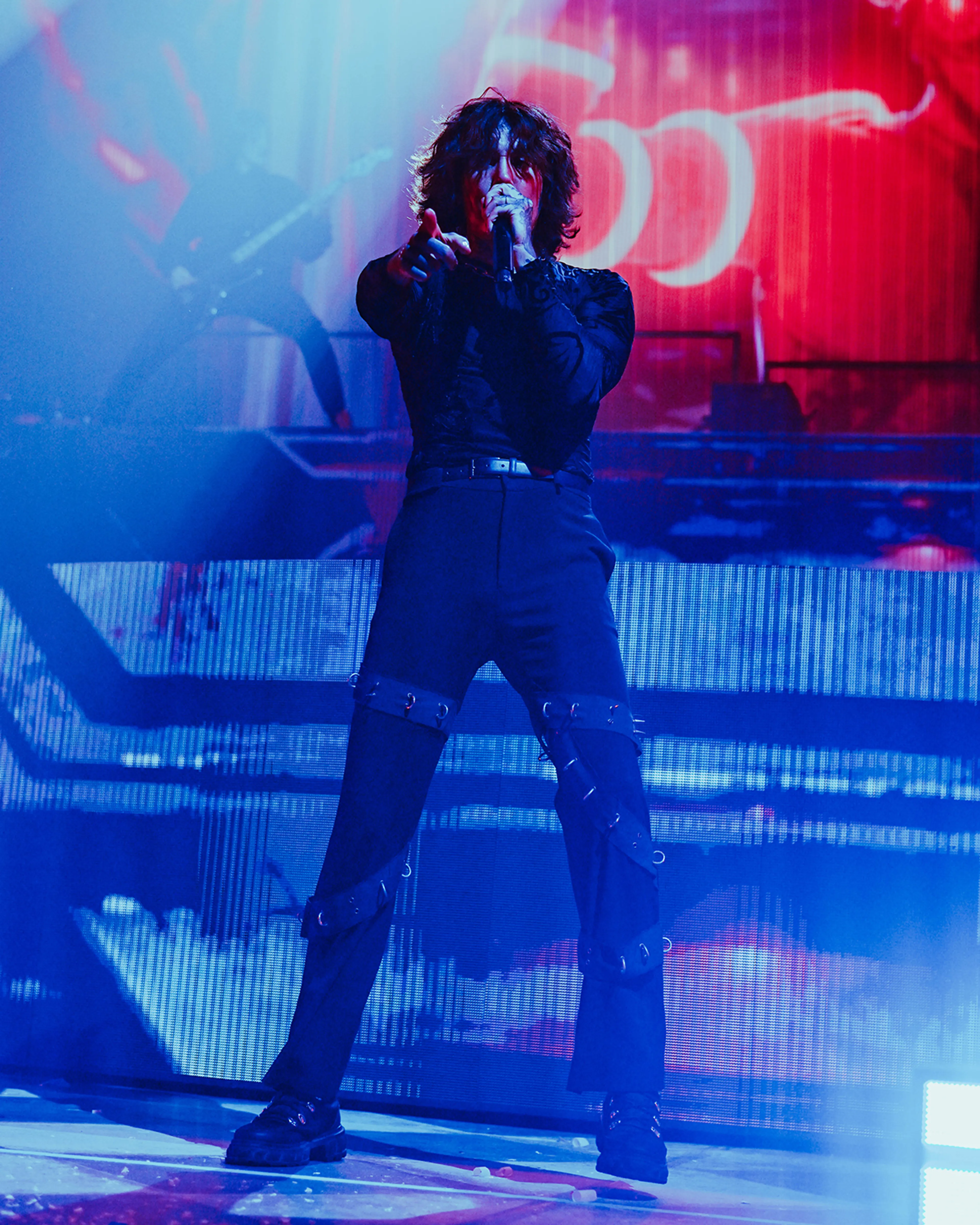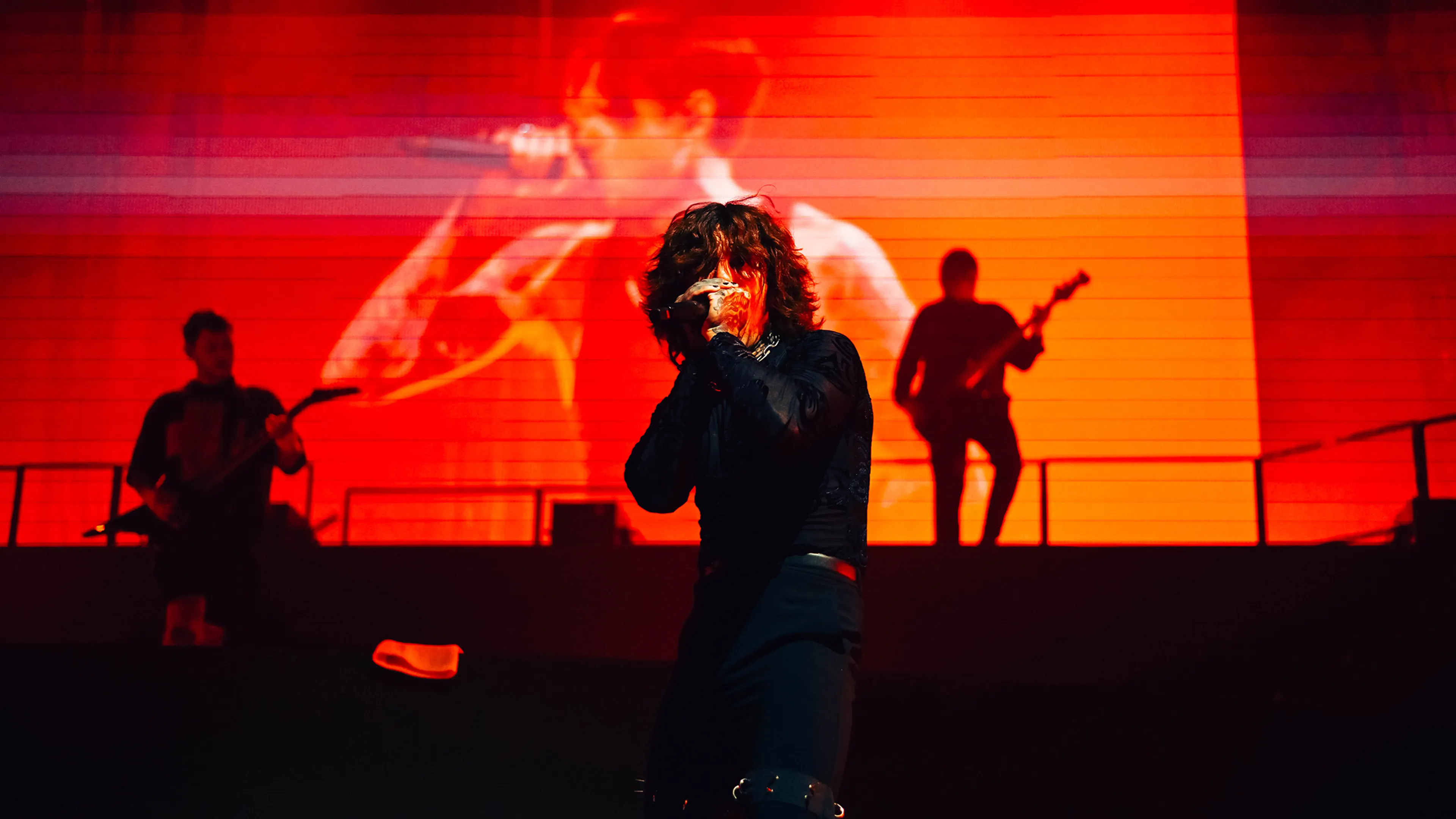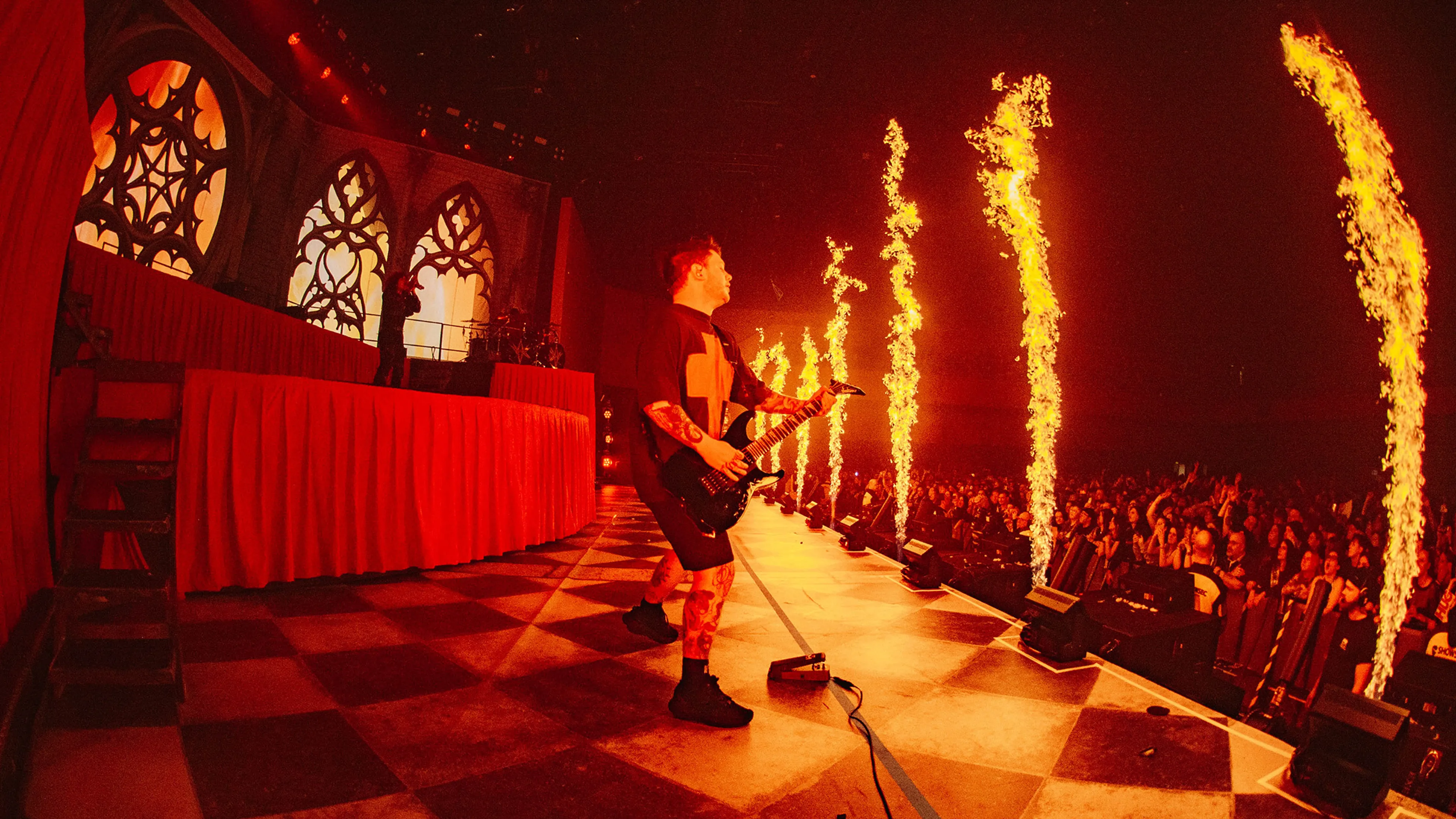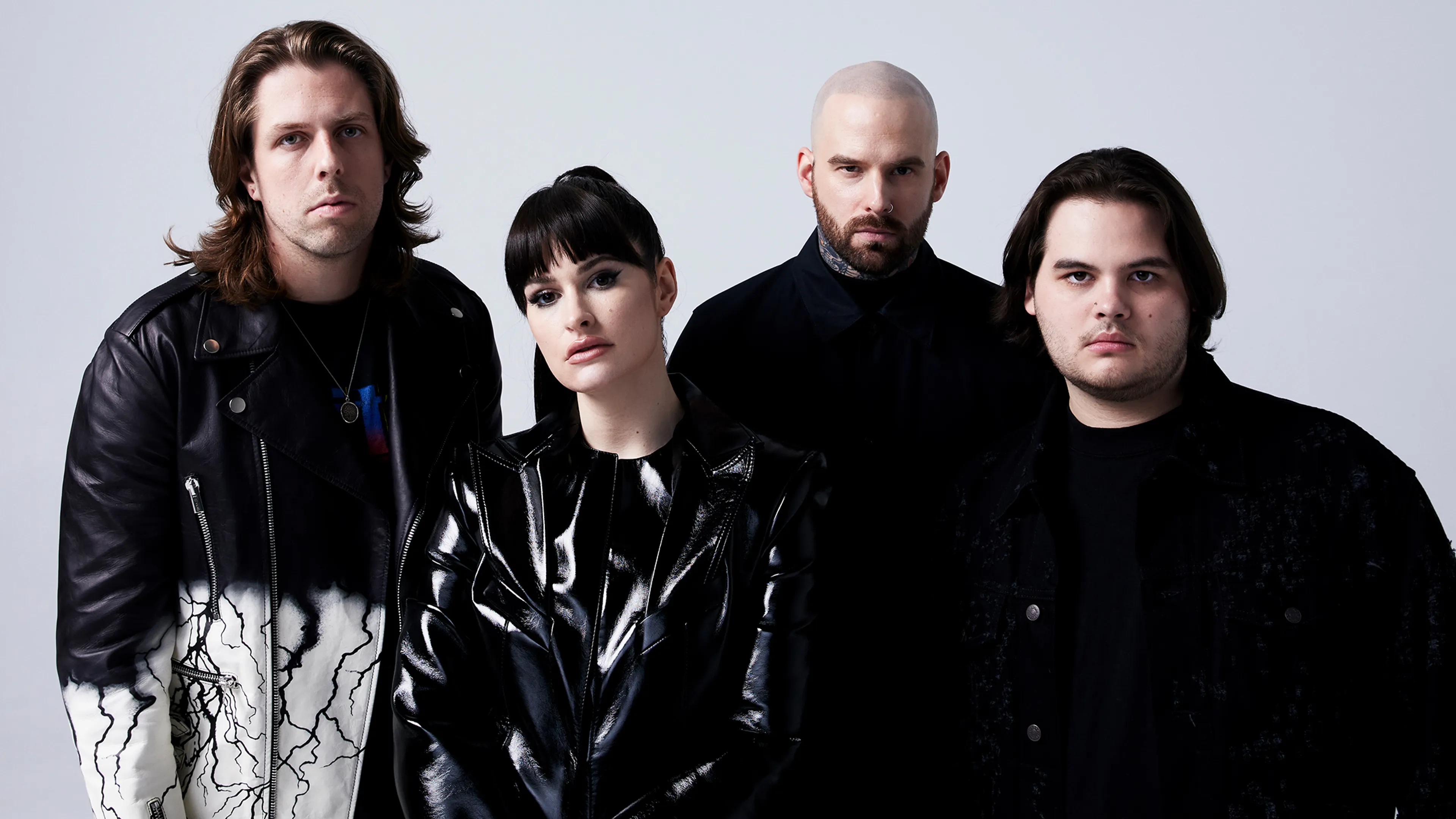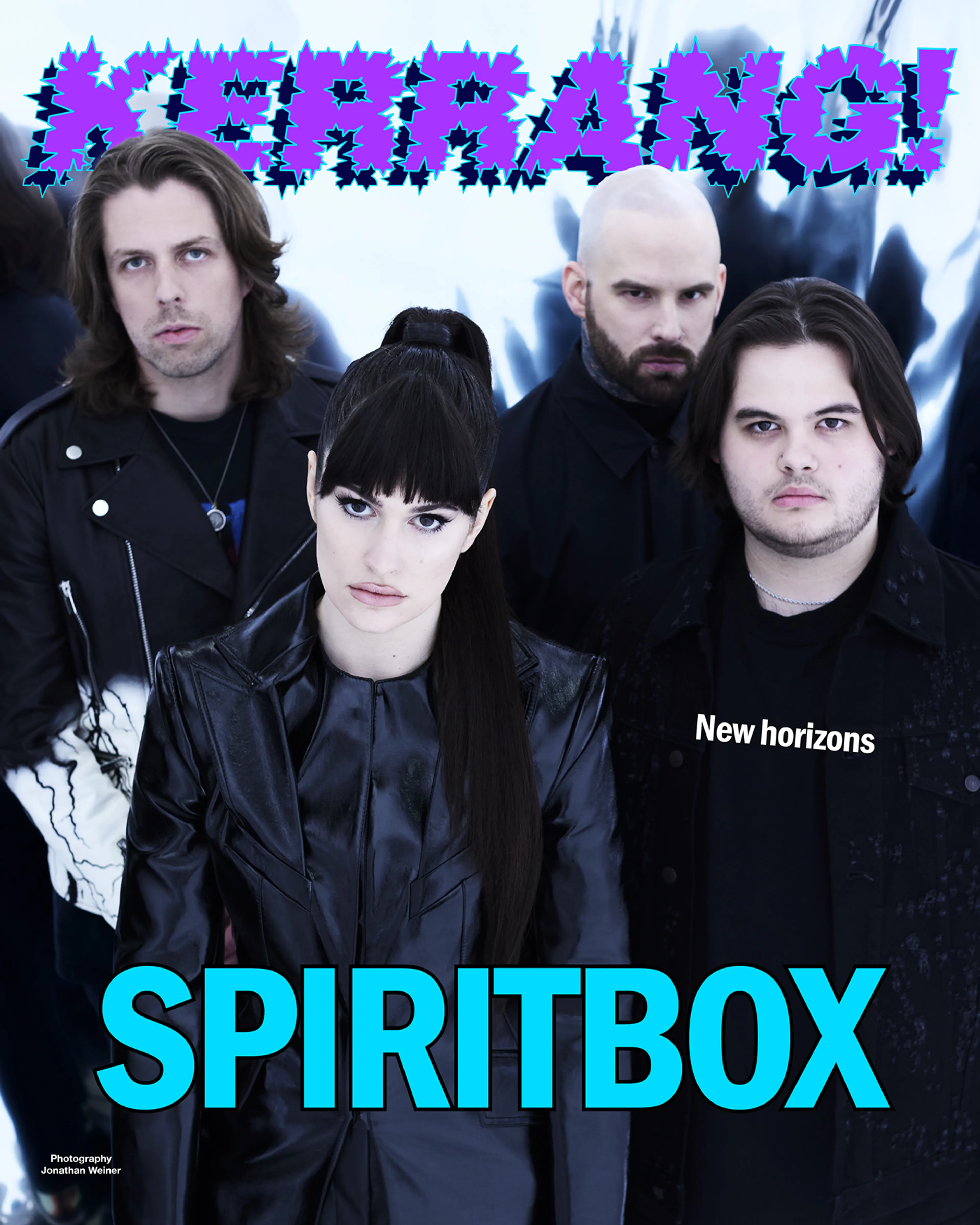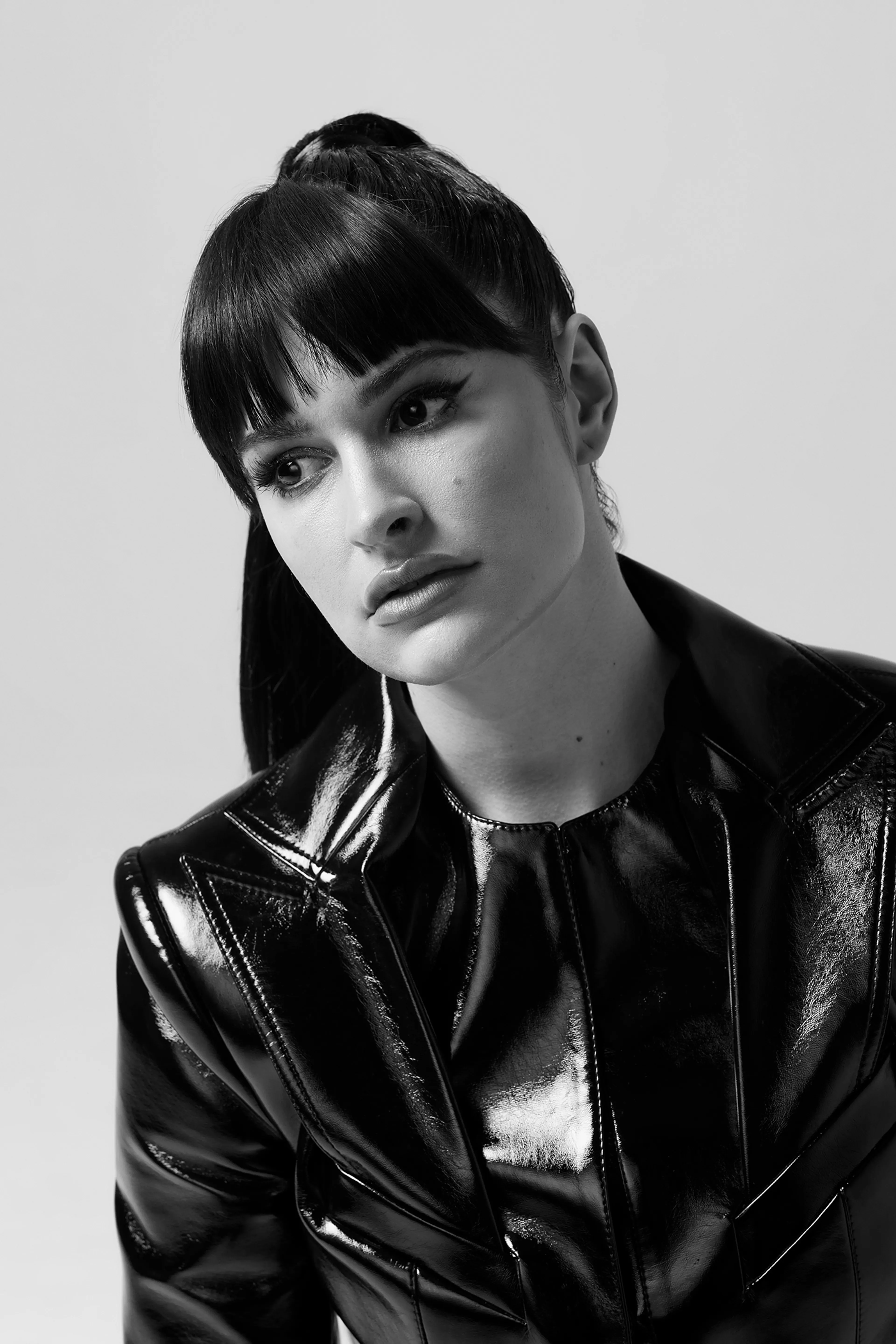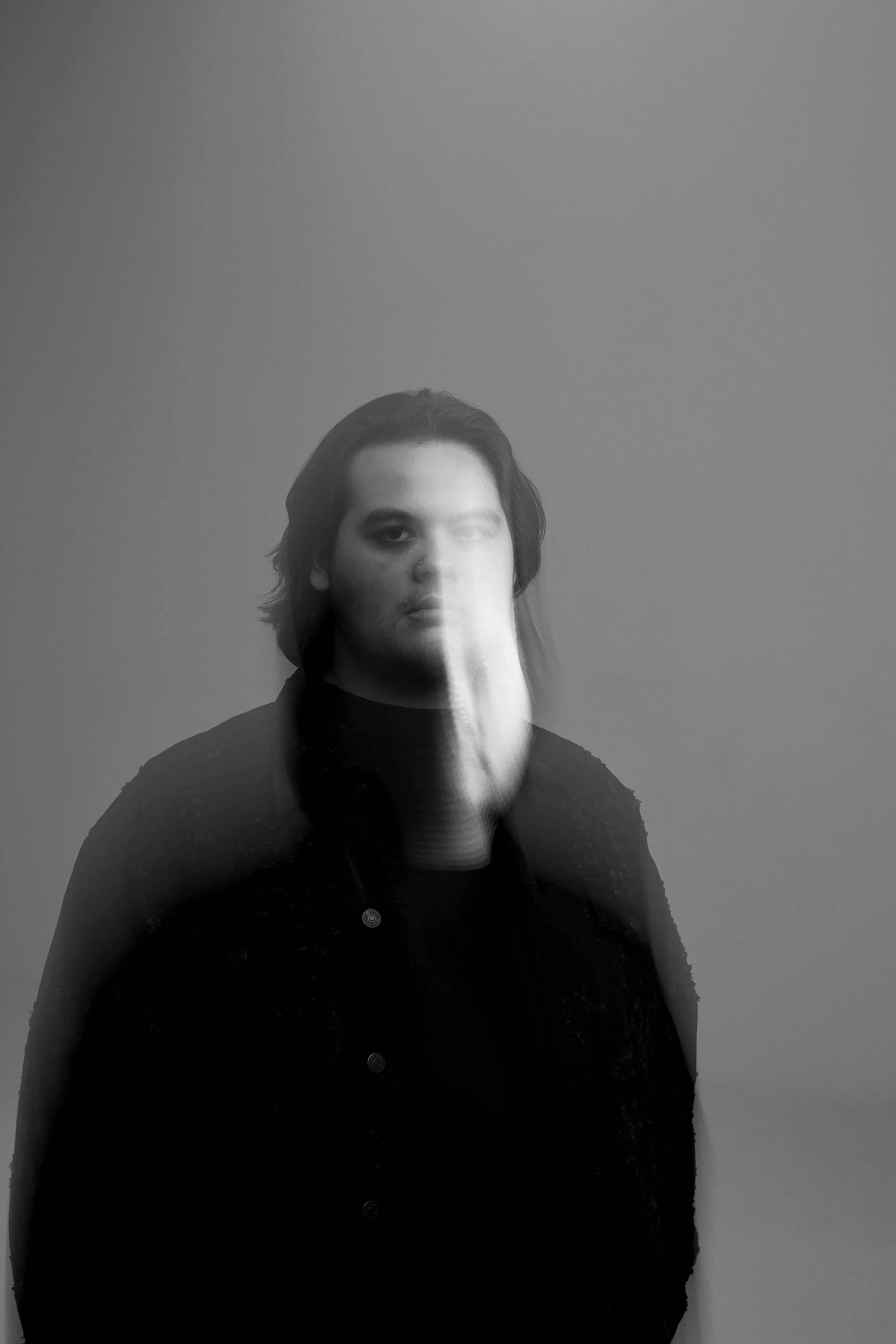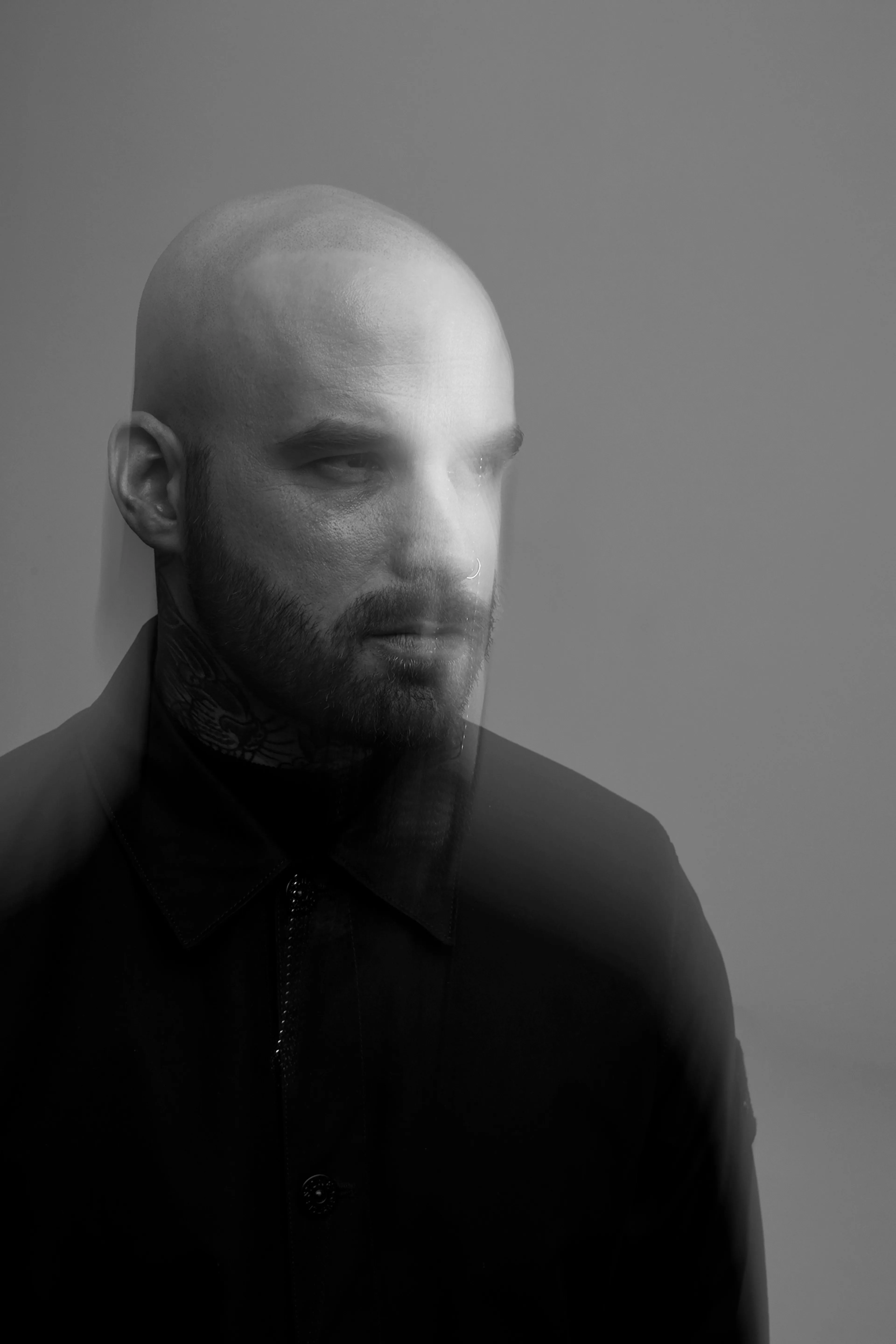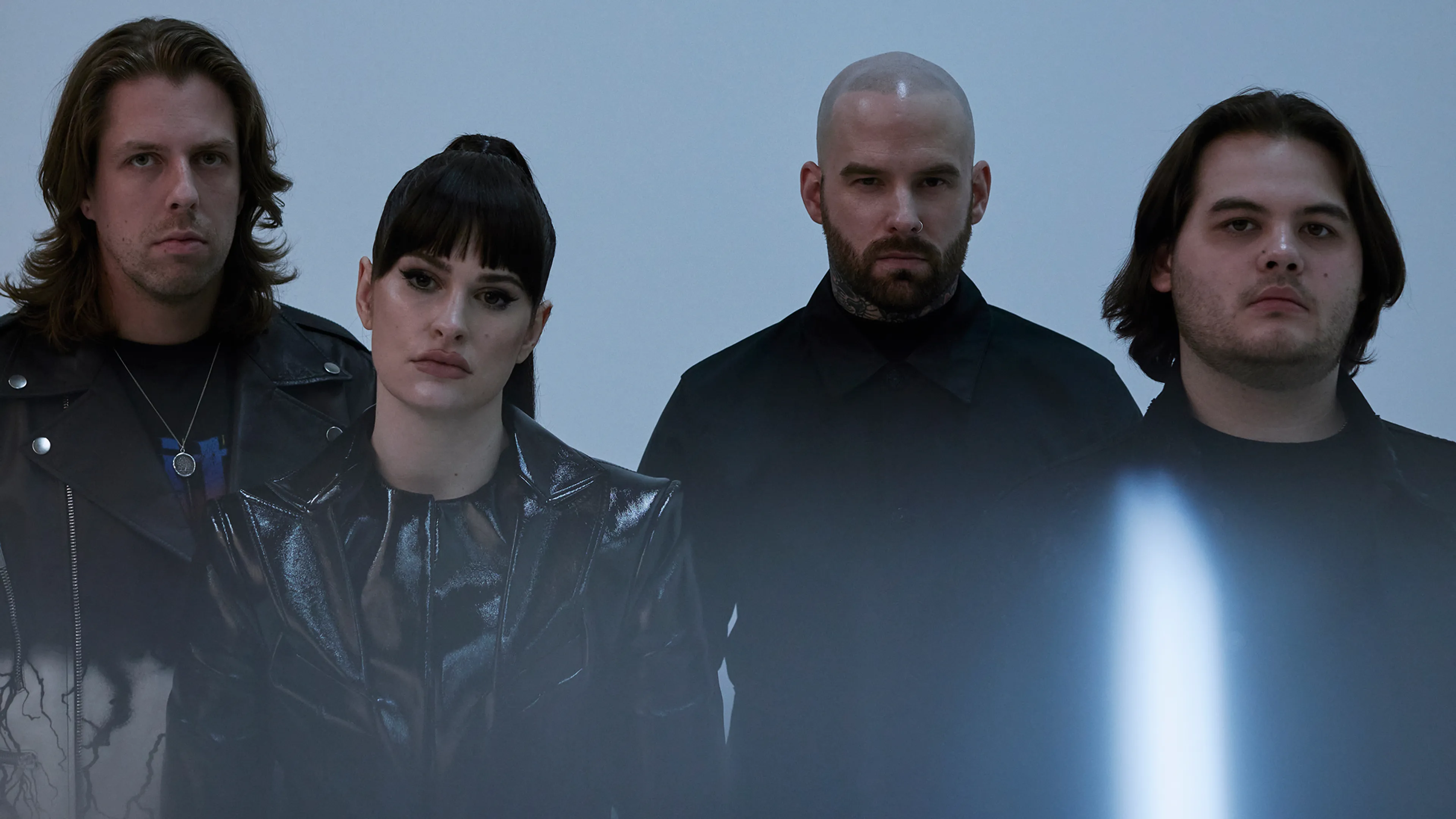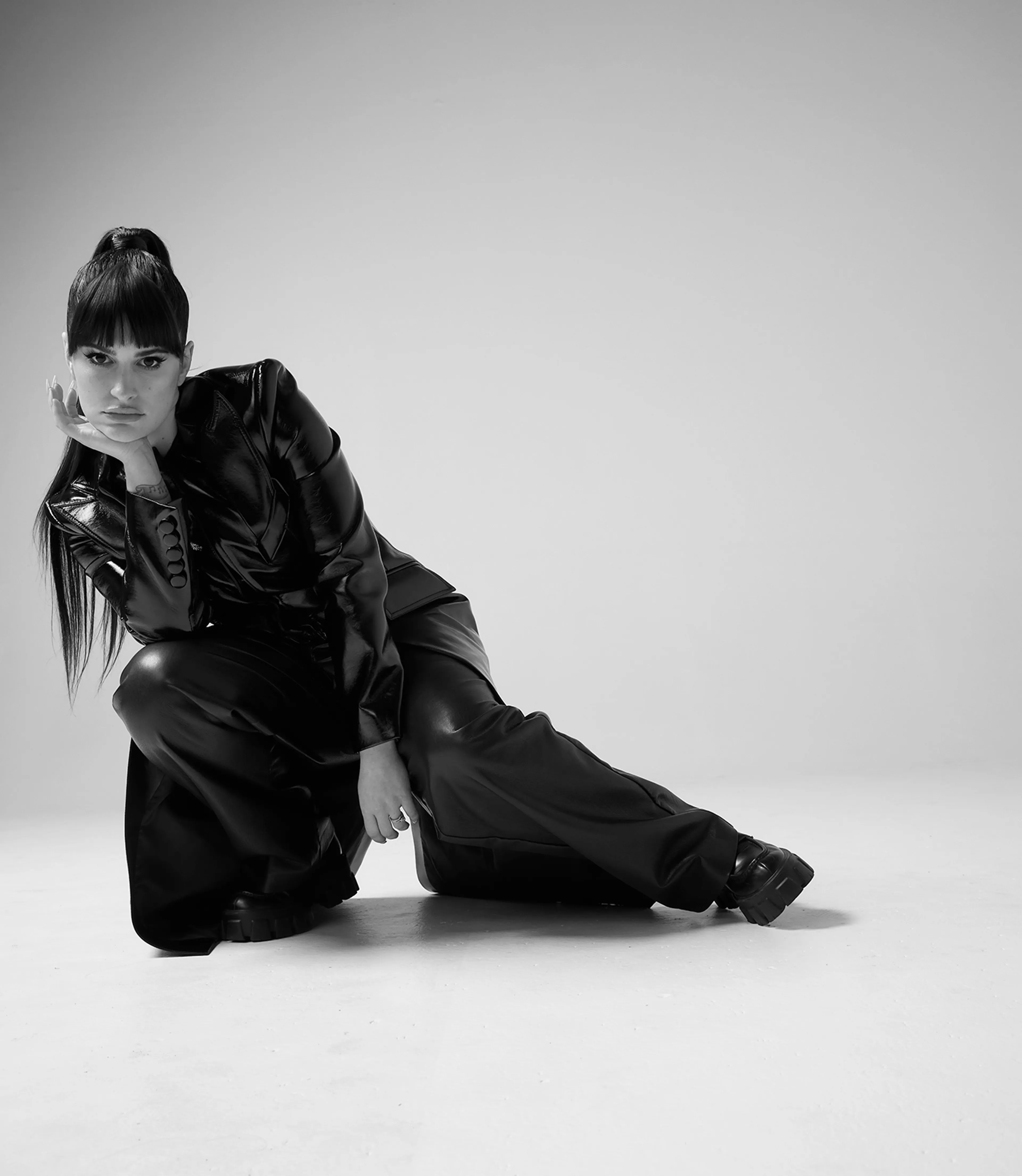THE COVER STORY“We’re pissing off the right people”: Sleater-Kinney, Lambrini Girls and the eternal power of riot grrrl
Riot grrrl might’ve originated in the Pacific Northwest in the 1990s, but the shockwaves it sent throughout the alt. scene are still being felt today, in the sound, lyricism and ethics of non-male bands across the globe. Here, pioneers Sleater-Kinney sit down with new breed (and superfans) Lambrini Girls to discuss punk, politics, progress and why that revolutionary attitude will never die…

Phoebe Lunny is frantically tapping at her phone screen searching for images of the actor Laura Dern in the cult 1982 punk movie Ladies And Gentlemen, The Fabulous Stains. The
Sleater-Kinney duo of Corin Tucker and Carrie Brownstein have just remarked how she’s the spitting image of her, and as the
Lambrini Girls vocalist and guitarist shows the results to Kerrang! and her bandmate, bassist Lilly Macieira, the resemblance is undeniably uncanny.
“That’s interesting, because the only other celebrity I’ve ever been told I look like is Lewis Capaldi,” Phoebe deadpans.
“Oh no, you look just like a young Laura Dern,” Corin insists. “She was a total stunner. A fox. But hey, so is Lewis Capaldi… just maybe in a different way.”
The flattery flows freely from that point on as the two bands put the world to rights across a lively afternoon in a cosy corner of the Mama Shelter lounge bar in Shoreditch, London. The Olympia, Washington pair are in the capital on promo business for their forthcoming 11th album,
Little Rope. Phoebe’s digs are just a stone’s throw away, but despite Lilly having to brave the uncertainty of the British rail system in winter to get in from Brighton, there was no way Lambrini Girls were going to miss a chance to sit down and shoot the shit with their heroes. Kerrang! are just tagging along for the vibes, fly-on-the-wall-style, as the ensuing conversation takes in everything from trans rights and toxic masculinity to art, music, politics and inspirations.
What follows are the condensed highlights of what can be published without getting anyone into too much drama on the internet. For the uninitiated, Lambrini Girls are one of the most authentic new voices in alternative music, with plenty to say for themselves about the injustices of the world. Sleater-Kinney are among the best to ever do it, with 2024 marking 30 years since the co-vocalists and guitarists holding court today first emerged as integral players in the riot grrrl movement.
Within seconds of the two bands meeting there’s an immediate spark of cross-generational chemistry, shared interests and values…
A Meeting Of Minds
Carrie Brownstein (Sleater-Kinney): “How did you guys meet, are you old mates?”
Lilly Macieira (Lambrini Girls): “Not really. I mean, now we are. But we met in Brighton and it’s a really small city, so we had loads of mutual friends. We played in a band together before Lambrini Girls, called Wife Swap USA.”
Carrie: “Another great name.”
Lilly: “That’s how we became besties, and then I joined Lambrini Girls a year and a half ago.”
Phoebe Lunny (Lambrini Girls): “I remember the first time I met Lilly. She was working behind the bar at a pub called The Hope & Ruin. I came in drunk with some friends and I thought, ‘This girl does not like me.’ It was a really busy night and all of the staff were really stressed. But we met again at a friend’s birthday and she thought I was really funny.”
Lilly: “I think I liked you all along. Bar work is just not the one. I accidentally show my emotion on my face all the time and I don’t know when it’s happening, so I think I was just over-stimulated that first night. Like, ‘Someone’s asking me to do my job? Fuck off!’”
Carrie: “There’s a great
Kathleen Hanna [
Bikini Kill vocalist] quote, that goes something like, ‘To find your perfect bandmate just look for the biggest bitch in your school’ (laughs).”
(Lilly and Phoebe both point at each other)
Phoebe: “How did you two meet?”
Corin Tucker (Sleater-Kinney): “I had a band called Heavens To Betsy. We were supposed to play a show with Bikini Kill in Bellingham, Washington, but they cancelled. I was arguing with like eight guys after the show about riot grrrl and Carrie came up to me and said, ‘Excuse me, I would like to get more information about this riot grrrl if you could take my number?’ I still have the journal that she wrote her number down in.”
Carrie: “I was going to university up there and I wasn’t loving it. I was 17 and I felt like I had ended up in the wrong place, so I knew I was going to drop out. I did end up finishing university in Olympia, so I gave Corin my dad’s address down there.”
Corin: “She asked me if I should drop out.”
Carrie: “And she was like, ‘Hell yeah!’ So, that’s how we met. I moved to Olympia that summer and then we started hanging out.”
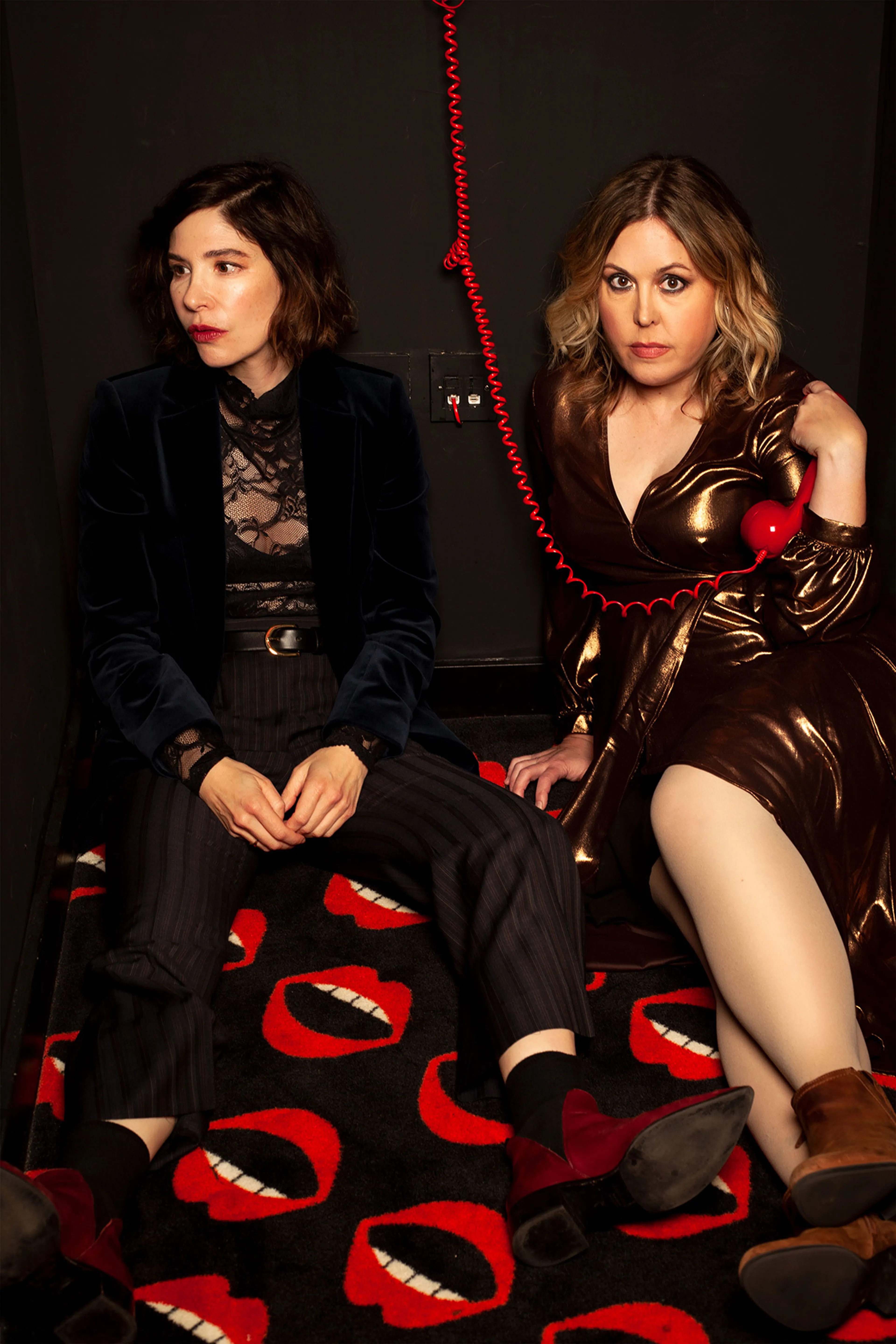

Riot Grrrl And Safe Spaces
Kerrang!: “Hold on, guys were arguing with you about riot grrrl?”
Corin: “Oh yeah. Like, ‘You’re so sexist! That’s oppression against men!’”
Carrie: “At the time there was a lot of that. Kathleen, Corin and the Bratmobile girls would ask women to come to the front. Because a much more violent audience would usually push women to the back, so Kathleen’s ‘Girls to the front’ thing would make guys so mad. It was pretty contentious back then.”
Lilly: “That attitude still exists, but I can only imagine what it must’ve been like back then. You must have had to push back so fucking hard.”
Corin: “Yeah, I think Kathleen probably had the worst time for that. She was like a magnet for that conflict. I argued, but I don’t think I drew the kind of craziness that she did. It was pretty scary for her, I think. It was a hard time in general. There was so much attention on riot grrrl that it kind of suffocated it. It became personally really overwhelming. There was a media blackout, but journalists would sneak in and pretend to be fans when really they’d be from The New York Times or something.”
Carrie: “Everyone stopped doing press. We were so young and they were publishing all this personal stuff. We didn’t really understand the implications of talking about our personal histories.”
Phoebe: “I can totally understand why you’d stop doing interviews. That stuff still scares me. ‘Girls to the front’ is, for me, one of the most iconic phrases ever. It’s something we use and interpret in a different way now. Like, if you are not a cisgender, straight white male, then come to the front.”
Carrie: “Of course.”
Phoebe: “Acts like that are so important; to carve spaces for people who don’t feel like there are spaces for them at gigs. Growing up, listening to riot grrrl, that was something that resonated with me. It’s interesting to see how it’s developed.”

Gender Roles And Pigeonholes
Phoebe: “We played at a festival called Art Rock in Brittany, where there’s a humongous drinking culture, so everybody’s wasted, we get onstage at 2am…”
Lilly: “…it was like looking out into a pit of bellowing gorillas, there was nothing going on behind the eyes.”
Phoebe: “Our first song is called Big Dick Energy, which is about toxic masculinity, and in the middle-eight these two guys start beating each other up, so I get in between them to try breaking it up, catch an elbow in the face and they get thrown out. Back onstage, we make the decision to get all of the women up on the stage to get away from these guys beating the shit out of everyone.”
Lilly: “We could see women were getting squashed in the violence. Even when the stage was filled with women there was total chaos out in front.”
Phoebe: “I remember playing that and thinking, ‘I wonder if this is what riot grrrl bands felt like when they played?’”
Corin: “Seattle had an amazing music scene, but there was this moshing, slam dancing culture that was incredibly masculine and kind of dangerous. It was very off-putting to women feeling a part of things. It was frustrating to be a female artist and feel like you were an accessory or side dish. It wasn’t centre stage at all. So, when Bikini Kill shouted, ‘We’re starting a revolution girl style now!’ it was so galvanising.”
Carrie: “The early language riot grrrl used was so blunt because it had to be. It’s nice that the language is now more nuanced. In early instances of scenes or movements, they can often be rudimentary or blind to intersectionality. Riot grrrl broke down so many doors but I think the interpretation of it now is a better version of it, because it’s adapted and so much more inclusive. It’s exciting for us to witness. Sleater-Kinney, honestly, we often pushed back against the riot grrrl moniker. Not because we were ashamed of it, but because the press had made it very simplistic and reductive.”
Phoebe: “Weird, we literally do the same thing now.”
Lilly: “What we do gets reduced, massively. To the point where what we’re saying gets lost and we’re being pigeonholed, musically and politically.”


Trans Rights And Terf Wars
Phoebe: “We’ve been super outspoken about trans rights. When we played with
Iggy Pop and Blondie, it was crazy. We made a visualiser for the background that read 'Trans Rights Now'. There’s this producer geezer in the UK called Graham Linehan – he did The IT Crowd and Black Books – who found out about it and tried calling us out online. We went back and told him to shut the fuck up, which started this crazy drama on Twitter. All of Terf Twitter were coming at us. We went from being this easy little band who ticked the feminism box to becoming this crazy-contentious band. It all went a bit mental. It was a constant parade of absolute shit talking.”
Lilly: “I’m still waiting for the day that JK Rowling comes for us.”
Phoebe: “Oh, she will. Or we’ll come for her first. It’s weird to see a small discourse around the band change when you start saying things that some people don’t want to hear. People really hate us now. But we’re pissing off the right people…”
Carrie: “Do you feel like that exists more vociferously online? I feel like Twitter just amplifies this stuff so much.”
Lilly: “Well, we’ve never been confronted about it in person.”
Carrie: “That’s always the way.”
Phoebe: “Keyboard warriors.”

Humanity Over Hatred
Corin: “We have always done things outside of our comfort zone. I mean, we opened for
Pearl Jam during the Iraq war.”
Carrie: “That was a very mainstream crowd, with a lot of military service members in the audience. I remember saying, ‘We’re against this war’ and got booed.”
Kerrang!: “Did they not listen to Bu$hleaguer?”
Carrie: “Oh, they booed Eddie [Vedder, Pearl Jam vocalist] during that song, too.”
Corin: “We did have some people return to our own shows and tell us they didn’t agree with our politics, but that face-to-face interaction is a much better way to exchange ideas. If we’re losing that – and in America we’ve lost a lot of that, which is a huge part of our problem – you’re definitely not going to have that human exchange on the internet.”
Carrie: “When people speak face-to-face and bring their humanity, most people listen. Unless you’re JK Rowling.”
Corin: “I feel like in a way, her discussions have mostly happened online and she’s almost doubling down.”
Carrie: “She’s tripled-down at this point. It’s cruel. Just shut up.”
Lilly: “It’s so hateful and not constructive in any way now. It feels malicious.”
Corin: “In the U.S. they are passing laws that are hurting trans children who are losing their healthcare. All the Red states are
passing legislation so that kids cannot get gender-affirming healthcare.”
Carrie: “And they’re vilifying parents, treating it like child abuse if you want to affirm your child’s gender if they’re under a certain age. I do think that some things are just so dire that you cannot stay quiet about them.”


Words Of Wisdom… Or Not
Carrie: “I have absolutely no advice for these girls. What’s reassuring about younger bands is that there is more of a blueprint and these guys really know what they’re doing. Or maybe they don’t, in a great way. We’ve made our mistakes, too. But they’re our mistakes. It’s about owning it and saying, ‘We’re on our own journey.’ Also, you don’t want that advice when you’re younger. You’ve got to put the feet to the fire for yourself. It’s like the [REM guitarist] Peter Buck story, for me. Corin’s worst nightmare…”
Corin: “We played this small show at The Crocodile Cafe in Seattle…”
Carrie: “…obviously, I do love REM. I’m just not as big a fan as Corin. So, we finished the show, I’m probably 22 years old and I pass him on the stairs going up when he says, ‘Hey, great show’. I was just like, ‘Meh’ and he was so mad. He thought I was so disrespectful.”
Corin: “He wasn’t mad. He thought it was funny. I was mad.”
Carrie: “Yeah, she’s like, ‘You just disrespected Peter Buck!’”
Corin: “My guitar hero.”
Carrie: “I just thought he was some old guy. He wasn’t even that much older than me then, but when you’re 22 anyone over 30 is old. And I didn’t need this old guy’s opinion. That irascibility is good, though. Now Peter and I are totally copacetic. Listen, there’s no way you’re telling me that Peter Buck wasn’t a brat when he was 22, too.”
Lilly: “I’m waiting for the time when we get to open for a big band and I’ll be able to say, ‘Good luck following that!’”

Politics, Pressures And Privilege
Carrie: “When you’re being assessed as a band, there are all these indexers, like you’re a girl band, a feminist band, or a political band. Sure, we’re all those things but we’re also just a band. Our whole career I’ve been so envious of white male bands – mostly cis bands – who don't have to explain what they are.”
Lilly: “I feel exactly the same. It is the reason why we do it, but there comes a point where there’s so much responsibility placed on you. In interviews it’s cool when people ask our opinions on political stuff, but it’s been really out of balance recently. It’s quite daunting sometimes. Like, ‘Do you maybe want to ask me what my favourite band is or who my influences are?’”
Corin: “Yeah, because you’re an artist and a musician, but you’re not getting to talk about that piece of it because you’re carrying around all this baggage.”
Lilly: “Which is great in one sense. But I have that same envy you talk about. My boyfriend plays in a band and they’re amazing, but their focal point isn’t politics whatsoever. It’s nice that they don’t have to worry about all that stuff. The responsibility is a lot on us. There are a lot of eyes on you, especially from those who don’t share your views. They’re waiting for you to trip up and it makes it dangerous. It’s not the safest out there.”
Carrie: “I don’t mind that so much. I would rather have art feel dangerous than sanitised. Aiming for the middle is just mediocrity. We’ve never done that. That’s the death of art.”
Sleater-Kinney's new album Little Rope is released January 19 via Loma Vista. Lambrini Girls' You're Welcome EP is out now via Big Scary Monsters.

